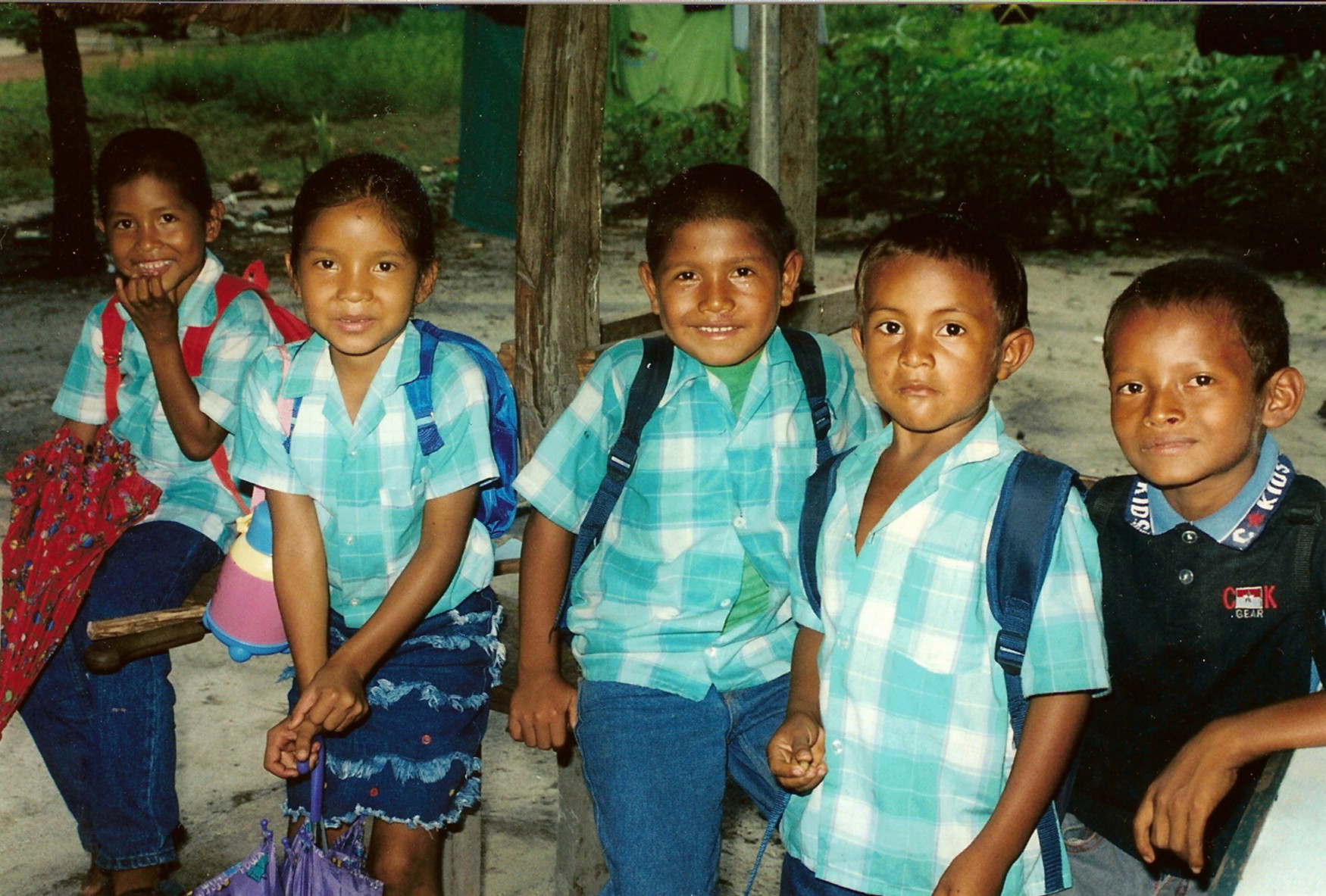|
Manaure, Cesar
Manaure also known as Balcón del Cesar (Cesar's Balcony) is a Colombian town and municipality located in the northeastern region of the Cesar Department on the Serranía del Perijá. Geography Manaure borders to the north with the municipality of La Jagua del Pilar in the Department of La Guajira; to the east with Venezuela and to the south with the municipality of Los Robles La Paz. The Municipality of Manaure is predominantly mountainous with higher altitudes ranging from 1000 to 2500 m oversea level on the eastern side of the municipality and decreasing to the west. The municipality has two main rivers; the Manaure River and the Chiriaimo River. History Pre-Columbian Prior to the Spanish colonization of the Americas the region was inhabited by the Bohures indigenous group, descendants of the Caribs which arrived to the region from what is present-day Venezuela crossing the Serranía del Perijá mountain range. Republicanism The area of Manaure was initially under the ... [...More Info...] [...Related Items...] OR: [Wikipedia] [Google] [Baidu] |
Natural Regions Of Colombia
Because of its natural structure, Colombia can be divided into six distinct natural regions. These consist of the Andean Region, covering the three branches of the Andes mountains found in Colombia; the Caribbean Region, covering the area adjacent to the Caribbean Sea; the Pacific Region adjacent to the Pacific Ocean; the Orinoquía Region, part of the ''Llanos'' plains mainly in the Orinoco river basin along the border with Venezuela; the Amazon Region, part of the Amazon rainforest; and finally the Insular Region, comprising the islands in both the Atlantic and Pacific Oceans. MEMO: Natural Regions of Colombia Memo.com.co Accessed 22 August 2007. Colombia is located in |
Manaure River
{{place name disambiguation ...
Manaure was the name of an indigenous chief or Cacique in Coro (Venezuela) (Venezuela) it may also refer to: *Manaure, Cesar a town and municipality in Colombia *Manaure, La Guajira a town and municipality in Colombia * Manaure River a river in Colombia flowing through Manaure, Cesar Manaure also known as Balcón del Cesar (Cesar's Balcony) is a Colombian town and municipality located in the northeastern region of the Cesar Department on the Serranía del Perijá. Geography Manaure borders to the north with the municipality ... [...More Info...] [...Related Items...] OR: [Wikipedia] [Google] [Baidu] |
Municipalities Of Cesar Department
A municipality is usually a single administrative division having corporate status and powers of self-government or jurisdiction as granted by national and regional laws to which it is subordinate. The term ''municipality'' may also mean the governing body of a given municipality. A municipality is a general-purpose administrative subdivision, as opposed to a special-purpose district. The term is derived from French and Latin . The English word ''municipality'' derives from the Latin social contract (derived from a word meaning "duty holders"), referring to the Latin communities that supplied Rome with troops in exchange for their own incorporation into the Roman state (granting Roman citizenship to the inhabitants) while permitting the communities to retain their own local governments (a limited autonomy). A municipality can be any political jurisdiction, from a sovereign state such as the Principality of Monaco, to a small village such as West Hampton Dunes, New York. The ... [...More Info...] [...Related Items...] OR: [Wikipedia] [Google] [Baidu] |
Department Assembly Of Cesar
Department may refer to: * Departmentalization, division of a larger organization into parts with specific responsibility Government and military *Department (administrative division), a geographical and administrative division within a country, for example: **Departments of Colombia, a grouping of municipalities **Departments of France, administrative divisions three levels below the national government **Departments of Honduras **Departments of Peru, name given to the subdivisions of Peru until 2002 **Departments of Uruguay *Department (United States Army), corps areas of the U.S. Army prior to World War I *Fire department, a public or private organization that provides emergency firefighting and rescue services *Ministry (government department), a specialized division of a government *Police department, a body empowered by the state to enforce the law *Department (naval) administrative/functional sub-unit of a ship's company. Other uses * ''Department'' (film), a 2012 Bollywoo ... [...More Info...] [...Related Items...] OR: [Wikipedia] [Google] [Baidu] |
José Guillermo Castro Castro
José is a predominantly Spanish and Portuguese form of the given name Joseph. While spelled alike, this name is pronounced differently in each language: Spanish ; Portuguese (or ). In French, the name ''José'', pronounced , is an old vernacular form of Joseph, which is also in current usage as a given name. José is also commonly used as part of masculine name composites, such as José Manuel, José Maria or Antonio José, and also in female name composites like Maria José or Marie-José. The feminine written form is ''Josée'' as in French. In Netherlandic Dutch, however, ''José'' is a feminine given name and is pronounced ; it may occur as part of name composites like Marie-José or as a feminine first name in its own right; it can also be short for the name ''Josina'' and even a Dutch hypocorism of the name ''Johanna''. In England, Jose is originally a Romano-Celtic surname, and people with this family name can usually be found in, or traced to, the English county of ... [...More Info...] [...Related Items...] OR: [Wikipedia] [Google] [Baidu] |
List Of Governors Of The Department Of Cesar
The Governor of Cesar Department is the popularly elected leader of the department of Cesar in northern Colombia to manage executive functions. Since the establishment of the Cesar Department on December 21, 1967, governors were appointed by the President of Colombia until the Colombian Constitution of 1991 changed it to election by popular vote. Governors See also *List of mayors of Valledupar * List of Colombian Department Governors References * * ''Cesar 30 Años de Progreso'' - Gobernacion del Cesar (1997) booklet {{Cesar Department Cesar Cesar, César or Cèsar may refer to: Arts, entertainment, and media * ''César'' (film), a 1936 film directed by Marcel Pagnol * ''César'' (play), a play by Marcel Pagnolt * César Award, a French film award Places * Cesar, Portugal * Ces ... Government of Cesar Department ... [...More Info...] [...Related Items...] OR: [Wikipedia] [Google] [Baidu] |
Department Of North Santander
North Santander (Spanish: Norte de Santander) () is a department of Northeastern Colombia. It is in the north of the country, bordering Venezuela. Its capital is Cúcuta, one of the country's major cities. North Santander is bordered by Venezuela to the east and north, by Santander Department and Boyacá Department to the south, and by Santander Department and Cesar Department to the west. The official Department name is "''Departamento de Norte de Santander''" (North Santander Department) in honor of Colombian military and political leader Francisco de Paula Santander, who was born and raised near Cúcuta. North Santander Department is located in the northwestern zone of the Colombian Andean Region. The area of present-day Norte de Santander played an important role in the history of Colombia, during the War of Independence from Spain when Congress gave origin to the Greater Colombia in Villa del Rosario. History Pre-Colombian The jungle zone and the valleys of th ... [...More Info...] [...Related Items...] OR: [Wikipedia] [Google] [Baidu] |
La Violencia
''La Violencia'' (, The Violence) was a ten-year civil war in Colombia from 1948 to 1958, between the Colombian Conservative Party and the Colombian Liberal Party, fought mainly in the countryside. ''La Violencia'' is considered to have begun with the assassination on 9 April 1948 of Jorge Eliécer Gaitán, a Liberal Party presidential candidate and frontrunner for the 1949 November election. His murder provoked the '' Bogotazo'' rioting, which lasted ten hours and resulted in around 5,000 casualties. An alternative historiography proposes the Conservative Party's return to power following the election of 1946 to be the cause. Rural town police and political leaders encouraged Conservative-supporting peasants to seize the agricultural lands of Liberal-supporting peasants, which provoked peasant-to-peasant violence throughout Colombia. ''La Violencia'' is estimated to have cost the lives of at least 200,000 people, almost 2% of the population of the country at the time. De ... [...More Info...] [...Related Items...] OR: [Wikipedia] [Google] [Baidu] |
Maracaibo
) , motto = "''Muy noble y leal''"(English: "Very noble and loyal") , anthem = , image_map = , mapsize = , map_alt = , map_caption = , image_map1 = , mapsize1 = , map_alt1 = , map_caption1 = , image_dot_map = , dot_mapsize = , dot_map_base_alt = , dot_map_alt = , dot_map_caption = , dot_x = , dot_y = , pushpin_map = Venezuela , pushpin_label_position = , pushpin_label = , pushpin_map_alt = , pushpin_mapsize = , pushpin_map_caption = , pushpin_map1 = , pushpin_label_p ... [...More Info...] [...Related Items...] OR: [Wikipedia] [Google] [Baidu] |
Kalina People
The Kalina, also known as the Caribs or mainland Caribs and by several other names, are an indigenous peoples of the Americas, indigenous people native to the northern coastal areas of South America. Today, the Kalina live largely in villages on the rivers and coasts of Venezuela, Guyana, Suriname, French Guiana, and Brazil. They speak a Cariban language known as Carib language, Carib. They may be related to the Island Caribs of the Caribbean, though their languages are unrelated. Name The exonym ''Caribe'' was first recorded by Christopher Columbus. One hypothesis for the origin of ''Carib'' is that it means "brave warrior". Its variants, including the English ''Carib'', were then adopted by other European languages. Early Spanish explorers and administrators used the terms ''Arawak'' and ''Caribs'' to distinguish the peoples of the Caribbean, with ''Carib'' reserved for indigenous groups that they considered hostile and ''Arawak'' for groups that they considered friendly. The ... [...More Info...] [...Related Items...] OR: [Wikipedia] [Google] [Baidu] |
Spanish Colonization Of The Americas
Spain began colonization of the Americas, colonizing the Americas under the Crown of Castile and was spearheaded by the Spanish . The Americas were invaded and incorporated into the Spanish Empire, with the exception of Colonial Brazil, Brazil, British America, and some small regions of South America and the Caribbean. The crown created civil and religious structures to administer the vast territory. The main motivations for colonial expansion were profit through Exploitation colonialism, resource extraction and the Catholicization, spread of Catholicism by converting Indigenous peoples of the Americas, indigenous peoples. Beginning with Columbus's first voyage to the Caribbean and gaining control over more territory for over three centuries, the Spanish Empire would expand across the Spanish West Indies, Caribbean Islands, half of South America, most of Central America and much of North America. It is estimated that during the colonial period (1492–1832), a total of 1.86&n ... [...More Info...] [...Related Items...] OR: [Wikipedia] [Google] [Baidu] |

